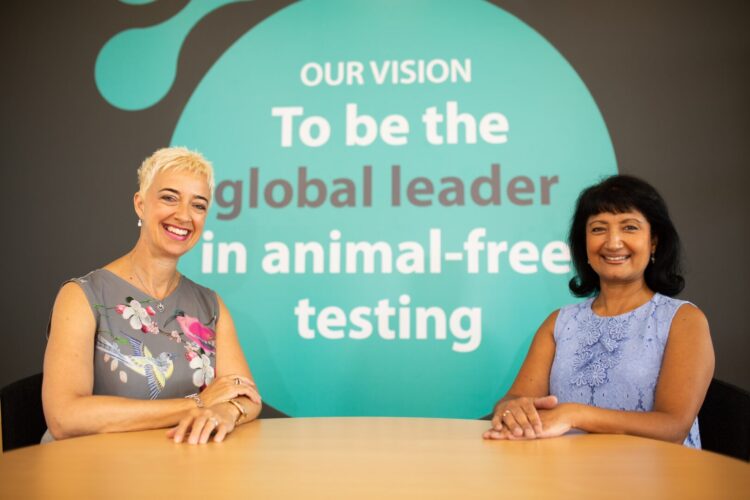Liverpool City Region’s Lab venture secures £100,000 for 100% vegan-friendly testing
A Liverpool city region laboratory has secured £100,000 from Unilever and AstraZeneca to develop vegan-friendly testing for new cosmetics and personal care products.

Dr Carol Treasure, left, and Bushra Sim, co-founders of XCellR8
Based at Sci-Tech Daresbury, XCellR8 is an animal-free testing lab testing lab venture. This new project will focus on the challenge to remove animal-derived products such as Foetal Bovine Serum from in vitro tests for new consumer products and chemical ingredients.
XCellR8 has secured the £100,000 funding for the six-month study in the CRACK IT Challenges competition that funds collaborations between industry, academics and SMEs. The prize is sponsored by Unilever and AstraZeneca and co-funded by Unilever.
CRACK it seeks to encourage the development of innovative ideas into marketable products or services that will have significant 3Rs (replacement, reduction and refinement) impact across the bioscience sector.
The study by XCellR8 has the dual aim of improving relevance to humans and reproducibility of test results, while reducing the use of animal products in the supply chain.
In the long term, it is hoped that success in this project could lead to the increased uptake of animal-free reagents, and to the acceptance of new protocols in the OECD test guidelines used by industry around the world.
XCellR8 has a successful track record in this area, having already adapted the established KeratinoSens skin sensitisation test to animal-product-free conditions, which led to the subsequent revision of the OECD test guideline to include the new method.
This latest funding will help the laboratory develop and validate new safety tests for genotoxicity (the ability of a chemical to cause a cell mutation which could cause cancer) among others.
XCellR8 Founder and chief executive, Dr Carol Treasure, said: “The increased availability of in vitro testing services has already saved the lives of countless animals and helped to improve the accuracy and reliability of tests that humans rely on to be sure that products are safe.
“However, the ongoing use of animal components in most of these tests compromises their human relevance and can affect the reproducibility of results – a factor that has been largely overlooked until recently.
“As consumer demand for vegan products, sustainable supply chains and robust product safety grows, we’re delighted to see Unilever and AstraZeneca sponsoring work to address this gap in the science.”
For more information on Liverpool City Region’s health and life sciences sector click HERE.
